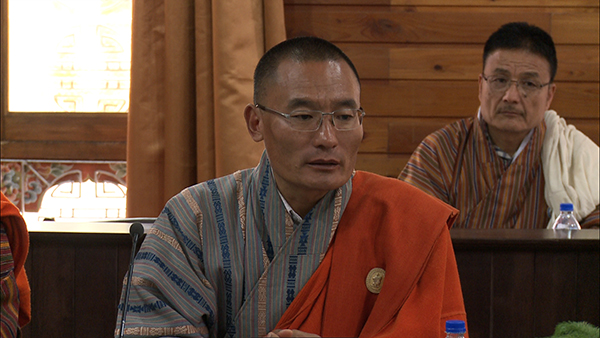 Two years since the economy experienced an acute shortage of Indian rupee, there are still no solid reforms in place in terms of managing foreign currency reserves.
Two years since the economy experienced an acute shortage of Indian rupee, there are still no solid reforms in place in terms of managing foreign currency reserves.
Both local and global economists recommended a slew of measures including, creation of a savings stabilisation fund. The recommendations also pointed out, since Bhutan shared close trade integration with India, rupees were more important than dollar.
Given rupees importance, economists recommended the establishment of a ‘savings stabilisation fund’ to monitor and regulate the inflow and outflow of rupees in the economy.
Local financial experts said the fund would act as a stabiliser, since it will save rupees during a time of higher inflows and release them during rainy days, thereby insulating the economy from fluctuations in cash flow.
The Prime Minister, Tshering Tobgay, during the meet the press session, yesterday said the Gross National Happiness Commission was seriously looking into the establishment of the fund.
However, he said, it was a question of weighing between how much revenue to save and how much to invest in development activity.
“If we save, it would mean forgoing other development activities including construction of roads, bridges, schools, and hospitals etc,” the Prime Minister said.
He added, the recommendations, made by foreign experts were on the basis that rupee earnings would increase through sale of hydropower to India. Lyonchhen said, once Punatshangchhu I and II and Mangdechhu starts selling power, the recommendations may be implemented.
Indian rupee reserve had reached Rs. 20B December, last year. Borrowings at commercial rates from banks in India have also been fully paid off.
“The economy is doing well,” the Prime Minister said, adding the economy would not experience shortage of Indian rupee again.
Responding to a query, Lyonchhen said expenditure under the 11th Five Year Plan will not put too much pressure on the Indian rupee since the government was carefully looking into it.
Earlier, pre-financing of government projects under the 10th Five Year Plan was recognised as one major contributor to the shortage of rupee.
Agriculture minister, Yeshey Dorji said economic activity in the country has increased with the country’s GDP growth rate at 5 percent in last year, according to a World Bank publication.
In 2013, the economy grew at a meager 2.05 percent, one of the lowest in decades.






